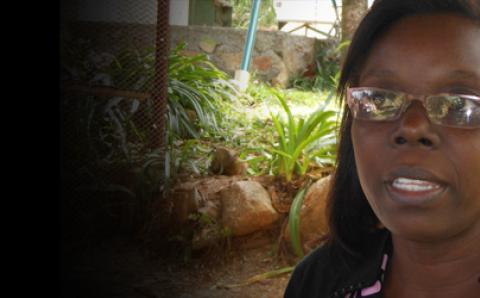“I may not be mainstream, but I’m still in the water.” That’s how I responded to a fellow Christian school science teacher who suggested that my belief in a recent creation (and a worldwide Flood) did not fit with “current science.” I was simply saying that a Christian can read Genesis literally and still be consistent with the observable and verifiable science of today.
Because about half of all evangelical Christians share a literal view about origins, this issue cannot be ignored or dismissed in the Christian Reformed Church or elsewhere.
Some call this issue divisive, but it can be divisive only if we fail to respect the sincerity and credibility of fellow Christians with opposing views. Since we’re in the same theological boat together, let’s promote smoother sailing by examining how we arrive at our views and the implications they produce.
Like many people in the CRC, I graduated from a Christian college. There I adopted an admired professor’s belief that God used evolutionary methods over millions of years to create. Who was I to question his training and wisdom? Later, however, I read the book The Genesis Flood by Dr. Henry Morris. For over 50 years it has been the standard-bearer for Young Earth Creationism (YEC). A 6,000-year-old earth and a literal reading of Genesis 1-11 are its trademarks.
The book provided not only scientific support for a worldwide Flood but also evidences for why the earth may look old but isn’t. Questions about rock and fossil “dating,” dinosaurs, and the historical Adam’s real first sin were also resolved. Evolutionary changes, whether theistic or not, were refuted.
Through continued studies, my confidence in the harmony between the Bible and natural revelation has been growing stronger every year. Conversely, many Christian Old Earth Creationists (OECs), who maintain that “God created using evolution” have come to different conclusions using their own research. We all agree about the “who and why” but not about “how and when” God demonstrated his greatness.
I will say that my position did not come easily. The secular world pretty much thinks it’s strange or naive, as they say, to ignore all the “evidence” of evolutionary processes. Most of that very same evidence, however, can be interpreted differently to support YEC, so I don’t mind the scorn.
What was harder to deal with was that I often heard Christian speakers promote Old Earth Creationism and at times undermine YEC. I also discovered a very limited understanding of Young Earth Creationism in Christian college graduates as well as in denominational and educational leaders, all after much personal and written communication with them. Yet, as Banner letters often illustrate, support for YEC in the general population and the denomination remains very strong. I enjoy having good company in my belief, butit’s undeniable that both “sides” in the church have many supporters.
For certain we should not allow disagreement to lead to division, because that is exactly what the Great Deceiver has in mind.
Starting with the Bible as our ultimate authority, it’s far better to become well informed about both views of creation, to make up our minds, and each be prepared to stand before God with our positions. In heaven some of us might even offer a sanctified “I told you so” with others and laugh about our former differences. I look forward to that time when God will finally give us all the details. For now, it’s imperative that we make and live with our decisions about creation and how they relate to the rest of our biblical perspective.
Genesis is foundational to the whole Bible, so it needs to be examined seriously. God knows our hearts and intentions, and he understands our limitationsas we seek to know his ways.
A key factor in the controversy is how much authority God’s special revelation, his Word, has in relation to his general revelation, his creation. I’d like to share a few of my beliefs about this issue, as others have done in similar articles promoting OEC. Readers can evaluate my comments in light of their own beliefs and Scripture. May God be honored by our interest and efforts and be pleased by our patience with each other as we discuss.
- Since Peter (2 Pet. 3:6), Paul (Rom. 5:12-19), and Jesus himself(Mark 10:6)spoke of Genesis as literal, so will I.
- The Bible says that death came “through sin” (Rom. 5:12). It does not describe millions of years of evolutionary change before Adam. If death preceded sin, Jesus’ death was unnecessary, and, as Paul said in 1 Corinthians 15:2, we “have believed in vain.”
- “Current science” by definition changes while God's Word “endures forever” (Isa. 40:8). I will not elevate human constructs to the same level as God’s inspired Word nor use them to determine its ultimate meaning.
- Current science can be conclusive about things that are observable and measurable, but not about creation events that had only one eyewitness—God himself. I will not ascribe authority to science beyond the limits that it has.
- We can never use imperfect science to prove the Bible, but only to support it. God’s perfect Word can stand on its own authority (Prov. 30:5).
- God said that he created birds before land animals (Gen. 1:20, 24). All brands of evolution reverse that order. Other conflicts between God's creation order and evolution abound. The “how” of God’s spoken order trumps any others for me.
- Fossils need quick burial and pressure (but not time) to form, which the Flood provided. Normal exposure after death would destroy bodies before presumed eons of fossilization time. I'll believe Genesis 7.
- To me, rock layers, folds, and geologic processes more than testify to a recent creation and a global Flood. Speculative dating methods can never prove a millions-of-years old earth.
- Contrary to what many believe, observable science in recent years has produced growing and overwhelming support for the literal Genesis account. That should surprise no one who believes that special and natural revelation have the same Author who never contradicts himself.
I believe it’s only a matter of time before the terminally ill concept of evolution will meet its demise. Some of its supporters are abandoning it, and I’m glad that I no longer embrace it, theistic or otherwise. I’m confident that my YEC belief is more consistent with the Bible and true science, and I invite others unfamiliar with it to check it out. (The websites AnswersinGenesis.org and CreationMoments.com are great references.)
Wow! That's more than enough to fill a coffee hour of discussion for those who are interested. My list is not intended to create more controversy but rather to promote contemplation about God’s wonderful creation account and its impact.
If that thinking keeps me from being “mainstream” in the secular or Christian world, it doesn’t really matter. We are all called in Romans 12:2 to be “transformed” in all our thoughts according to God’s words and deeds rather than conformed to anything “current.” That starts with Genesis 1:1.
And it’s not just because I think so. It’s because God said so.
Related:
The Christian Reformed Church’s position statement on creation and science.
Web Questions
- The author argues in favor of “young earth creationism.” How would you define that term?
- A key factor in the controversy about origins, says DuMez, is how much authority God’s special revelation, his Word, has in relation to his general revelation, his creation. Do you believe one carries more weight than the other? Why or why not?
- How does the author reconcile the story of creation in Genesis with scientific discoveries suggesting a much older earth?
- “I believe it’s only a matter of time before the terminally ill concept of evolution will meet its demise,” writes DuMez. Do you agree or disagree? Why?
- DuMez acknowledges that both “sides” of the debate on origins in the church have many supporters. Is this issue of pivotal importance to our faith? Why or why not?
About the Author
Michael DuMez is a retired Christian school science teacher and a member of First Christian Reformed Church, Oostburg, Wisc.









